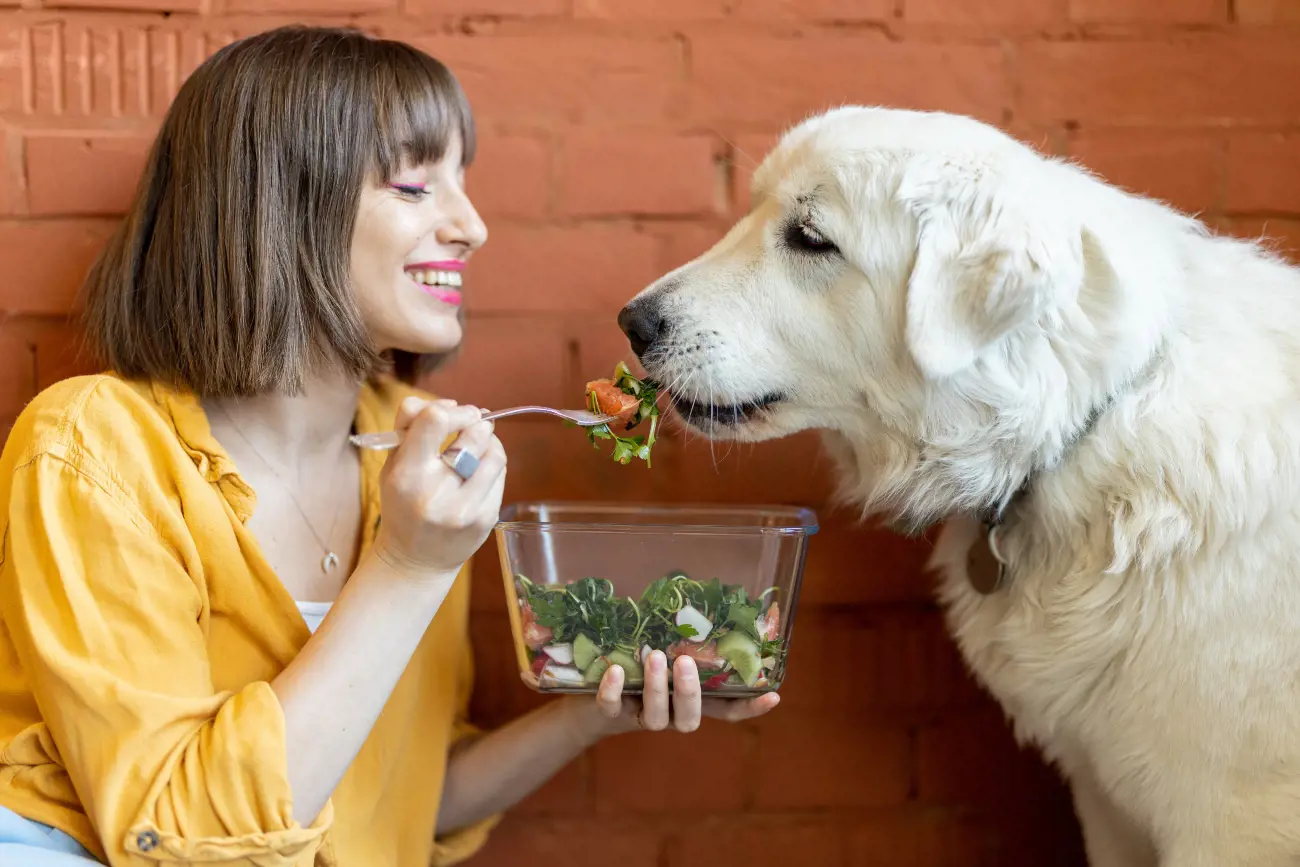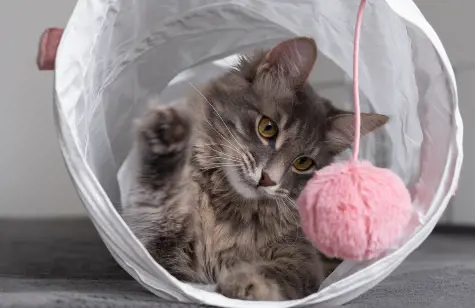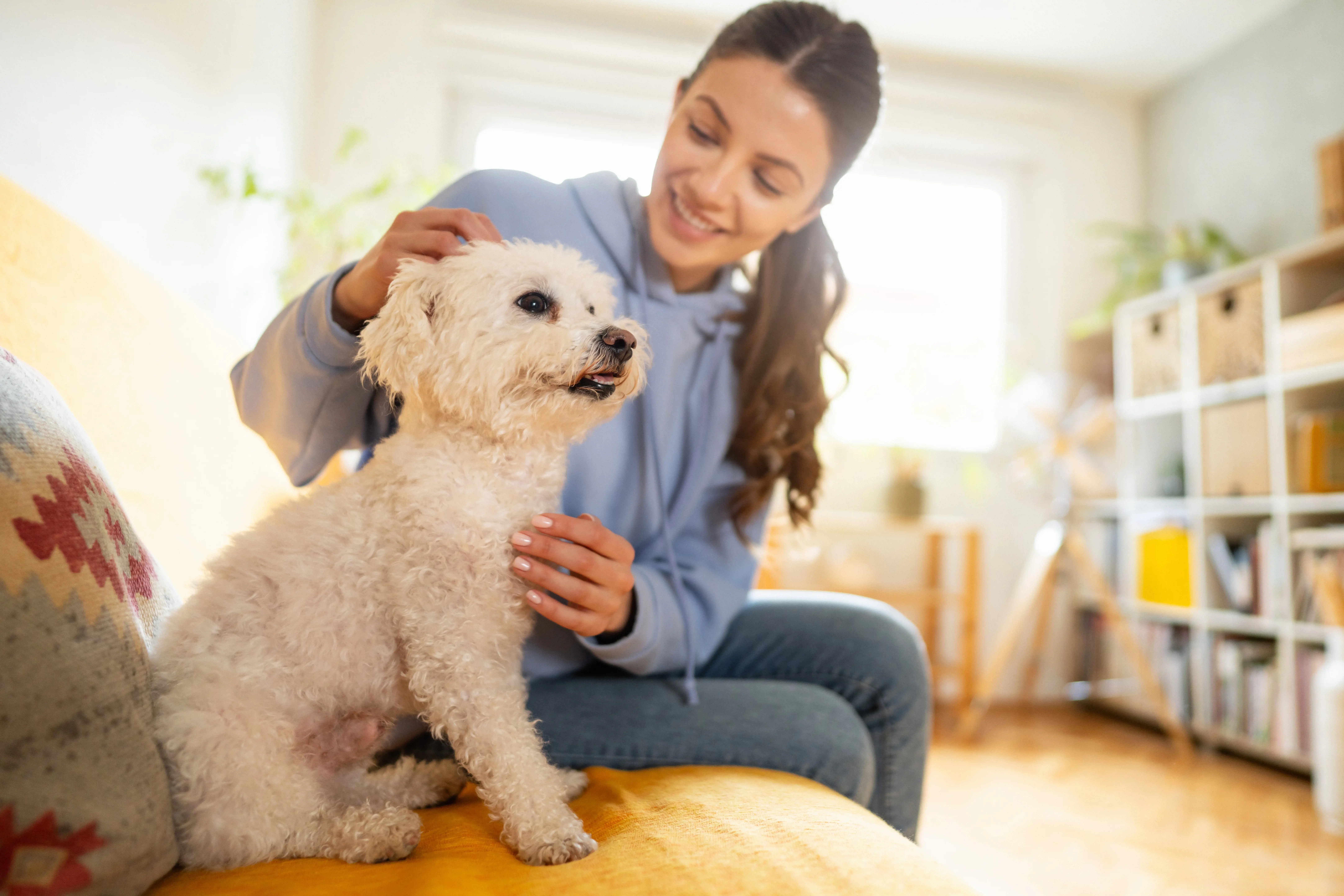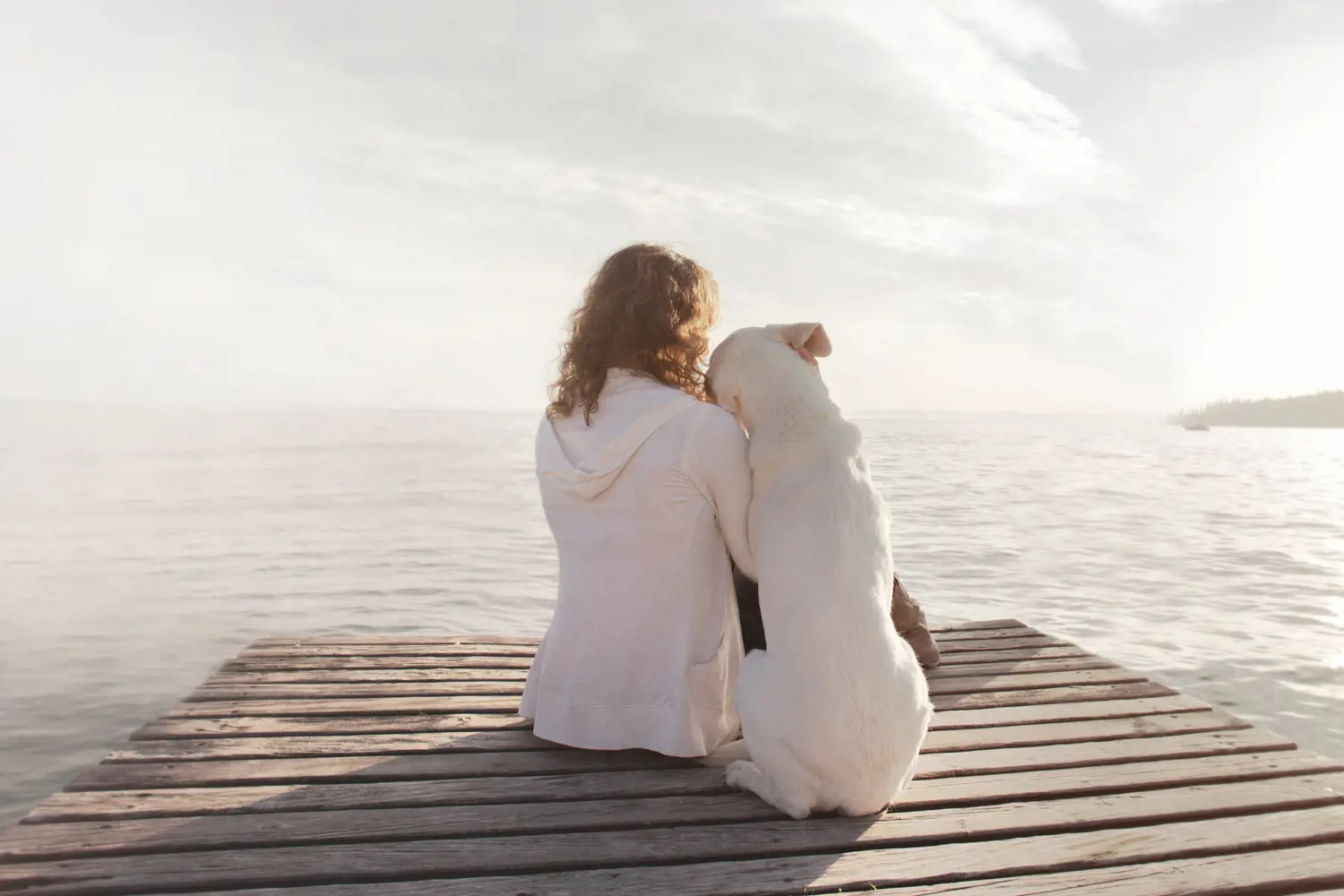Most Googled questions about dogs
20th October, 2021
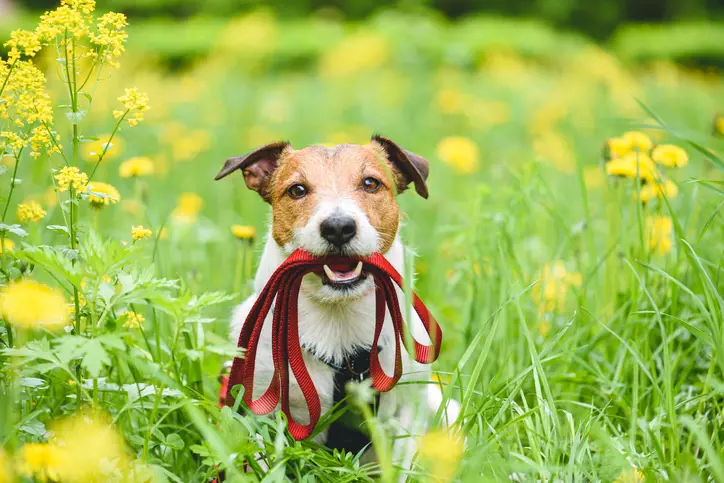
It’s been said many times before, but where would we be without the internet? There’s an answer for just about everything. And while we shouldn’t take Google as gospel, it’s a resource that can educate and inform on all those weird and wonderful things that our dogs do.
From whether you should be concerned about your dog eating the lawn, to why your companion brings you their favourite toy every time you come through the door, Google will be able to tell you.

Don’t rely on ‘Dr Google’
When it comes to health issues affecting your dog, however, you should always consult a vet directly. Otherwise, you could be led down the wrong path – thinking your pet has one condition when, in fact, they have another. Or worse, doing nothing at all.
In a survey by the British Veterinary Association, 40% of vets said pet owners’ online research was often unhelpful. Only 6% of vets found it useful. Worryingly, over 80% of vets have clients who bring their pets in later than they should because they’ve followed advice online.
One vet quizzed in the survey said: “Dr Google often results in owners misdiagnosing conditions, followed by the client being led to believe that there is a cheap and effective ‘treatment’ obtainable online or from a pet shop. And animals suffer far longer than need be.”
Another vet recalled how one pet owner he was talking to during a consultation pulled out their phone to see if what the professional was telling them tallied with the advice given online.
“It is frustrating that some people appear to genuinely believe that a veterinary degree and a quick search on Google are the same thing,” said the vet.
By all means, use Google from time to time – it’s only normal to do so, and many owners do it so that they don’t ‘waste the vet’s time’ – but it shouldn’t be a replacement for professional advice.
Here at Purely Pets, we offer all of our pet insurance customers access to a 24-Hour Vet Helpline. If you have a question or concern about your insured pet, you can call our helpline and speak to a qualified veterinary professional to put your mind at rest.
What are pet owners searching for?
You name it, pet owners have searched it on Google. We thought we’d compile some of the most commonly Googled questions about dogs – you may already know the answer to some of them having Googled them yourself!
So, let’s start with those questions that we opened this article with…
Why does my dog eat grass?
It’s been said that dogs eat grass as a way to make themselves sick when feeling under the weather, or to show their owners that their diet is lacking in some nutrients, but the animal charity Blue Cross suggests neither have been proven to be true.
It might be as simple as your dog likes the taste of the grass, which is at its most flavoursome in the spring and summer months when it’s green and fresh. Or perhaps they’re a little bored and are chewing some grass to pass the time.
Usually, there’s not much to worry about – but you might need to seek expert advice if the habit becomes excessive, or they end up munching on grass that has been sprayed with harmful pesticides. However, you might need to ensure your dog is protected from lungworm, which is passed on by slugs and snails. Standard flea and worm treatments won’t cut it, so speak to your vet about the best treatment options.
If your dog’s grass-eating habits really start to bug you, try to distract them with some play the next time they go in for a nibble. Usually, they just need an entertaining distraction to turn their attention away from your lovely lawn!

Why does my dog bring me a toy?
It will never not be endearing to have your dog greet you with their favourite toy in their mouth as you arrive through the door – but what is it that possesses them to do so?
This gift-giving behaviour is extremely common among dogs, says dog-walking website Wag, which points out that it’s most likely an attempt by your pet to please you. Obviously, if the toy is covered in dribble, or they end up presenting you with an unwanted gift, it’s probably not going to have the desired effect – but they don’t know that!
It could also be an attempt by your dog to make you play with them or give them some attention. Chances are you are inadvertently encouraging this behaviour, too, as what dog owner doesn’t give their pooch a hero’s welcome when they come through the door?
With that in mind, if your dog starts to greet you with inappropriate items – laundry and whatnot – you might want to think twice about giving your pet a kiss and a cuddle as you greet them. Instead, ask them to drop it before you engage them, and make sure they have an array of toys to choose from when you go out, otherwise they’ll get bored!
Why do dogs lick you?
As dog people, we don’t mind the odd lick from our dog – but not everybody is happy to have all that saliva up in their grill. If you want to curb your dog’s tongue a bit, it’s important to understand why they do it in the first place.
The Healthy Pet Clubs suggests it boils down to a couple of reasons. Firstly, licking can be a dog’s way of understanding someone’s intentions – particularly people they’ve never met before. An over-friendly lick is likely to make the person they’re greeting to reciprocate the sentiment – at least, that’s what dogs think!
If you’re the recipient of a big sloppy kiss, however, it will be because your dog is delighted to see you. It’s at this point you should consider how you respond if you want your dog to become a little less familiar with their tongue. Instead of responding positively to the licking, take a step back and wait for your dog to calm down a bit before greeting them.
If their licking becomes a problem, contact your vet and/or a registered veterinary behaviourist.
What is reverse sneezing in dogs?
If you’ve noticed that your dog gives out a loud snort when they sneeze, which sounds like they’ve got something caught in their nose or throat, this might be what’s commonly known as a reverse sneeze.
Instead of releasing air rapidly through their nose as with a normal sneeze, they take air into the nose. The condition, which is known as paroxysmal respiration, doesn’t look or sound too comfortable for a dog, but is not likely to be doing them any harm.
A reverse sneeze can last for up to a minute, depending on the irritant that’s got up your dog’s nose. If it’s a prolonged episode, you can stroke their neck as a way to calm them.
As My Family Vet points out, there’s usually not much to be worried about. But if your dog is regularly reverse sneezing, a trip to the vets will help you identify the underlying cause of it and work out the best form of treatment.
If reverse sneezing is caused by allergies, for example, anti-inflammatory medication can work wonders. But always go off your vet’s advice before administering any medication.
Can dogs catch COVID?
This is not a particularly easy question to answer, with the research still ongoing into pets’ susceptibility to COVID-19. But the latest research suggests that, yes, dogs can catch the disease, with owner-to-pet transmission fairly common.
Researchers from Utrecht University tested 310 pets in 196 households where a human infection had been detected. Seven dogs returned a positive PCR result, while 54 animals tested positive for virus antibodies.
"If you have Covid, you should avoid contact with your cat or dog, just as you would do with other people," was the advice of Dr Els Broens, one of the authors of the study.
He suggested that while a dog shouldn’t experience too many serious effects from the disease, they can “act as a reservoir of the virus and reintroduce it into the human population.”
So, if you or somebody else in your household tests positive for Coronavirus, don’t be alarmed for your pet’s safety – but do keep cuddles to a minimum!
There may be even a few more other diseases that humans can catch from dogs and you can read more about those on one of our recent blogs.
Why does my dog stare at me?
As humans, we are told from a very young age not to stare – but dogs aren’t programmed in the same way! In fact, you might regularly feel your dog’s eyes burning holes in the back of your head.
For dogs, staring is a form of communication. As Purina explains, a dog’s stare could be saying all manner of things, from ‘I love you’ to ‘What are you doing?’.
Over time, you will be able to read their body language to work out what they are trying to say with their stare. If they’re tilting their head to one side with pricked ears, it’s probably a sign that they’re confused. If you’re eating, a stare is your dog’s way of saying ‘I want some’.
However, you need to have your wits about you should your dog stare at you constantly for no apparent reason, as this behaviour could suggest they have Cognitive Dysfunction Syndrome. Consult your vet if your dog seems a little off with their staring.
Does my dog love me?
If you show your dog love, there’s a good chance that they will think the world of you. As animals, dogs have a lot of love to give. But, we get it, you want to be sure that your feelings for your dog are reciprocated.
Blue Cross has offered up some telling signs that your dog loves you, including ‘soft’ eye contact i.e. a gooey-eyed stare, tail wagging and, as we’ve already touched upon in an answer to another question, licking you.
Also, if your dog comes over to you unprompted and cuddles into you, you know it comes from a place of love. Don’t take offence, though, if you wrap your arms around your pet and they shy away, as some dogs simply find a proper human cuddle too restrictive. Just be happy that they’ve come over to you in the first place to seek solace.
What do dog owners ask their vet?
Perhaps you’re a new owner and you’re wondering if your doggy questions are valid or if other owners are asking the same thing as you? Check out the top questions pet owners ask their vets here!
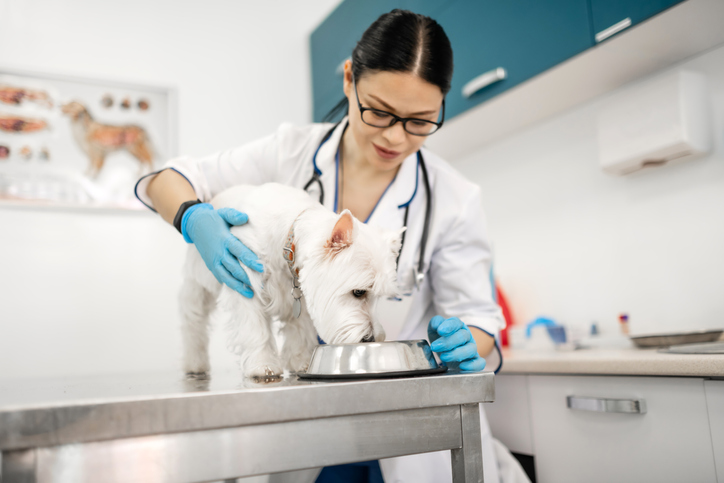
What pet insurance should I get?
Pet owners want to ensure they’re doing right by their dog – and by their finances – with their pet insurance cover. Not all pet insurance policies offer the same level of protection and it’s important you take the time to understand which option is right for your pet’s needs.
Our Lifetime policies offer cover for accidents and illnesses during your pet’s lifetime. So, if your pet was to develop a condition early in their life, you can claim – up to the benefit limit imposed in the policy – for any ongoing treatment, provided that you keep renewing your policy.
We only offer Lifetime cover to our customers as we believe it is the most comprehensive cover available, plus it keeps things nice and easy to understand.
Before deciding which type of dog insurance cover is right for you, it’s always worth getting a few quotes. Purely Pets can provide you with an online quote in just a few clicks.
We are more than happy to help you make a decision on which cover to take out. Our specialist Pet Insurance team is on hand to discuss your options in more detail.
Here are some of the reasons to choose Purely Pets:
-
Purely Pets vet advice line
-
No upper age limit
-
Online claims
-
Direct payment to vet
-
15 levels of Lifetime cover
-
Lifetime cover up to £15,000
-
Choose an excess from £60
-
Online customer policy management
Get your quote for dog and puppy insurance today.
Policy benefits, features and discounts offered may very between insurance schemes or cover selected and are subject to underwriting criteria. Information contained within this article is accurate at the time of publishing but may be subject to change.
Helpful Pages
Recent Posts
Pet Insurance Quote
- 98% claims paid *
- Claims paid directly to vets
- 24/7 vet video consultations
- Interest free monthly payments

